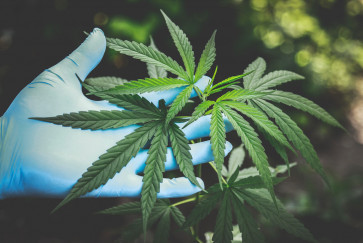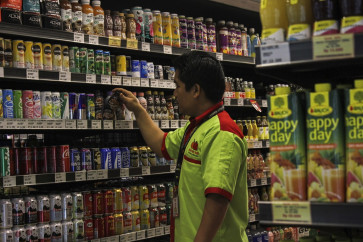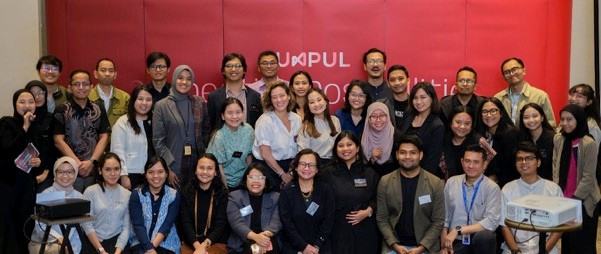Policy reforms to make business easy and boost growth
Change text size
Gift Premium Articles
to Anyone
 Photo courtesy of BKPM (-/-)
Photo courtesy of BKPM (-/-)
T
he government has launched economic policy packages by phase to boost economic growth, with Investment Coordinating Board (BKPM) highly instrumental in attracting domestic and foreign direct investment. The economic policy package (EPP) volume 1 was announced in 2015 and to date, as many as 15 packages have been launched as of July 2017, with policy reforms focusing on six areas: investment, industry, logistic, tourism, export, and purchasing power.
Lengthy and complicated bureaucratic procedures and inefficiency due to too many permits are among the reasons behind the government’s move to reform the policies pertaining to each sector. “We will continue to reform to simplify our regulations, to open our economy. We keep rolling deregulation measures until we have a good investment climate,” said President Joko Widodo.
Latest data at Coordinating Ministry for Economic Affairs shows that initially, there were 233 regulations which need to be deregulated and based on the further assessment, 11 regulations have been revoked from deregulation process.
As of July 3, 2017, deregulation of 215 regulations are 97 percent completed, comprising 50 regulations at Presidential level and 165 regulations at Ministerial/Institutional level and the remaining seven regulations are under discussion.
In the area of industry, licenses has been made simpler and faster at one-stop service at BKPM to boost industrial competitiveness, with business people no longer required to comply with Indonesian National Standard (SNI) for imports and recommendation letters and surveyor’s verification (LS) for certain imported goods. Apart from that, the government has also provided facilities for investment in in Special Economic Zones (SEZs) that include tax holiday, which reduce income tax; tax allowance, which reduces net income and accelerate depreciation, and 0 percent VAT and luxury goods sales tax.
Under the deregulation package, the government has also issued property ownership for foreigners, ease of visa, residence and investment permits as well as exemption from investment negative list. Apart from that, the government has completed 99 percent deregulations, developed eight SEZs, two of which are already in operation. Following the deregulation measures, 14 provinces have implemented minimum wage formula and additional tax incentives implemented.
Significant progress has also been made in the area of logistics, tourism, export, people’s purchasing power and investment. Under the reform policy on logistics, as many as 12 Bonded Logistics Centers have been inaugurated. Aside from that, BLC Cikarang has underpinned import and storage of cottons for textile industry.
In the area of tourism, the government has increased the number of free visit visa for tourists from the previous 75 countries to 169 countries. Another move in this regards is an offer of up to 100 percent of foreign ownership, especially for three star and above hotels, restaurants, bars and cafes, sport centers and film industry, from production, processing to cinemas; and 67 percent of foreign ownership for hotels (up to 2 stars), private museums, conventional services and exhibitions, golf course, bowling alleys, SPAs and karaokes, natural tourist attractions and travel agencies.
Thanks to the measures, tourism has recorded approximately 6 percent increase of foreign tourist in 2016 and provided business opportunity for local people as 18 new business lines were opened.
To stimulate export, the government gas taken several measures related to export financing and deregulation and debureaucratization as part of export facility that exporters can utilize. In the area of financing, Indonesia Eximbank provides export financing, guarantee and insurance for transactions or projects in commercial difficulties. Aside from that, the government has also set up a consortium of financing industry aimed to accelerate financing for export-oriented, creative industries and SMEs and provide export-oriented business credit (KURBE), which provides complete and integrated credit facilities for SMEs and export credit up to Rp 25 billion (US$1.85 million).
Policy reform on export has led to PT INKA exporting 150 trains worth US$72.3 million to Bangladesh, supported by Eximbank. The reform also saw small-and medium-enterprises (SMEs) in North Sulawesi exporting 167 tons of coconut flour.
President Jowi Widodo expected that deregulation measures aimed to strengthen people’s purchasing power should be felt by the business sector and by the people. Therefore, the measures should include setting a wage formula, small business credit, price stability and low-cost housing. The fair, simplified and projected wagesformul is created through the issuance of provincial minimum wage (UMP) regulation and formula for setting yearly wage adjustments, considering inflation and economic growth. Another measure in this regards is by providing small business credit (KUR). The result is that 14 of 34 provinces or around 41 percent have implemented minimum wage formula, including West Java, Banten, Bali and North Sumatera as of 2016.
Meanwhile, KUR-related measures include provide subsidy on KUR and expand criteria for KUR that covers micro and SMEs in productive sectors, overseas Indonesian workers in formal sectors or terminated contracts and family member of salaried workers and overseas Indonesian workers. As a result, interest rate for KUR has been lowered to 9 percent in 2016 and until July of the same year, the realization of KUR reached Rp 59 trillion, or 54 percent of the whole year target.
Ease-of-Doing Business
Under Jokowi – JK administration, Indonesia’s economy is expected to grow on the basis of investment instead of consumption as this will have a long-term effect on the country’s development.
Established in 1973, BKPM has learned a lot about how to work with investors since its inception. It has received a boost since the election of President Joko Widodo in 2014, who is keen to see foreign investment contribute to the development of the country to give it an extra push up the ladder of success. The board is headed by Thomas Trikasih Lembong, a 1994 Harvard graduate and former Morgan Stanley banker who was elected as a Young Global leader by the World Economic Forum in 2008. Under the leadership of Thomas Lembong, BKPM has taken breakthrough and innovative strides to boost investment climate by, among other things, providing one-stop service for investment, three-hour-investment service and the Direct Construction Investment Service, or KLIK. The endeavors are part of how to improve ease-of-doing business (EoDB).
Under one-stop service for investment procedure, the process of issuing licenses, which previously divided between 22 ministries and government institutions, is integrated into one and moved to the agency under one-stop service – Center (OSS-C) platform. This enabled applicants for investment to process all the documentation at a single desk at BKPM.
As many as 167 permits are delegated to BKPM including power, industry and tourism and as a result, the licensing for investment is much simpler and faster. For example, power generation that requires 25 permits is completed in 256 days, compared to previous 49 permits in 923 days. These changes have ushered in a drastic reduction in the time needed to process the permits and licenses required to set up shop in the country as well as vastly improved transparency.
Since early January 2016, BKPM has adopted a three-hour licensing service method under which the service is conducted at one place, in one visit and in three hours from previously 23 days. The service is for projects valued above Rp 100 billion (or its equivalent in US$) and/ or those that would employ more than 1,000 local workers, issuing in-principle permits allowing work to begin on factory construction immediately. By March of this year, 313 projects have taken advantage of the three-hours services.
Clothing manufacturer Nesia Pan Pacific president director Moon Hyung Joo commented that after 17 years of operating in Indonesia, he is fully aware of the fully improved licensing and permit process operated by BKPM Not only have the processed changed, but the attitude of the officials is impressive, he notes.
“We are really impressed by the spirit and enthusiasm of the officials of BKPM. They do not only assist us with the documentation but also by providing support in the field. If we compared with the past performance, it is very different. Now the government and public servants are extremely transparent and very active in serving the investors.”
“KLIK service” is designed for those eager to invest in industrial estate under priority investment service. Once principle licenses have been obtained, investors can immediately begin constructing plant on any of 32 major industrial estates located in 10 major provinces across the country. Companies are still required to obtain licenses such as building permits and environmental approvals, but these can be processed after construction has commenced. As of May of this year, 90 projects have utilized the “KLIK services”
Green Lane Facility
BKPM has also made a breakthrough solution to lengthy clearance and customs clearance time by providing Green Lane Facility. The average five to six week total clearance time has been reduced to two days, while the average six day-customs clearance time has been reduced to less than half day.
This simplified processes for the import of machinery and equipment for companies represents cooperation between BKPM and the Indonesian Customs and Excise Service in which direct inspection is not required and only document for the imports need to be checked. To date, 66 companies have received the Green Lance Facility, of which 94 percent have utilized the facility.
Asked to comment on the Green Lane for machinery and equipment imports, officials at Oki Pulp and Paper say that the program was extremely helpful, with faster Customs processing. “This allows us to complete the installation of machinery in our new factory faster and without any disturbances. Since the introduction of the Green Lane, a process that used to take a lot of time can now be accelerated. Our equipment can be released in a single day.”
BKPM’s endeavors to make doing business easier have paid off. Total foreign direct investment (FDI) in the second quarter of 2017 stands at Rp 109.9 trillion, compared to Rp 99.4 trillion in the corresponding period of 2016.
Meanwhile, investment realization in the second quarter of 2017 is registered at Rp 170,9 trillion, increases around 3.1 percent from Rp 165.8 trillion recorded at the first quarter, or increases around 12.7 percent from Rp 151.6 trillion recorded at the second quarter of 2016.
According World Bank, Indonesia has made a significant progress of EoDB. Based on a EoDB survey in October 2016, Indonesia was in the uppermost country on Top Performer list based on improvements made in starting a business, getting electricity, registering property, getting credit, paying taxes, trading across boarders and enforcing contracts.
The country’s ranking on the EoDB index in the World Bank’s flagship annual report has jumped 15 places to 91st place, from the previous rank of 106. The survey’s result put Indonesia on the top – position country with seven indicators of reform that fixes at once.
Despite the increase in the EoDB, Indonesia still lags behind other ASEAN countries such as Singapore that ranks second, Malaysia 23rd, Thailand 46th, Brunei Darussalam 72nd and Vietnam 82nd. That’s why President Joko Widodo has set the target for EoDB for Indonesia at 40th place in 2018.
The deregulation measures are also expected to favor the implementation of large-scale infrastructure projects in terms of bringing investment. The infrastructure development project, one of the primary development priorities of the Jokowi-JK administration, requires huge funds. The ongoing projects include the development of 35,000 MW new power plants, 150 new seaports, marine toll, 1,000 new toll roads, 19 new airports and 2,159 km inter-urban railways.









